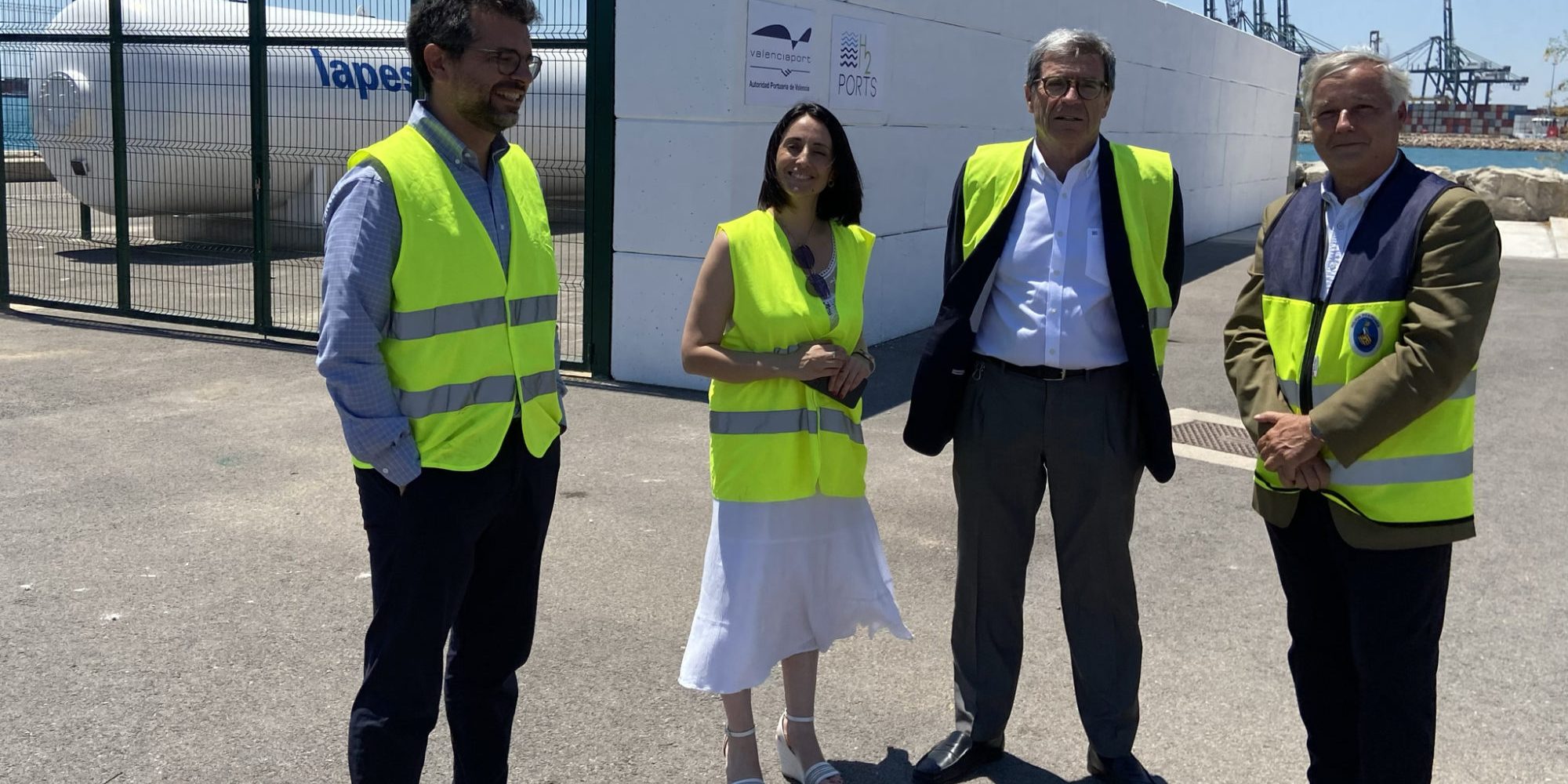During the first month of the year, hydrogen refueling tests will begin at the Port of Valencia service station. With the arrival of the new year, the port once again takes a step forward in its commitment to the fight against climate change and decarbonization. The technicians from Valeciaport, the National Hydrogen Center and the company Carburos Metálicos that participate in this initiative will supervise this operation that is carried out for the first time in a Spanish port.
Specifically, throughout January various tests will be carried out with materials such as nitrogen, helium and hydrogen to test the elements and mechanisms that make up the port’s hydrogen station. This refueling test will be the starting point for supplying hydrogen to the reach stacker and 4×4 tractor unit prototypes that will begin operations in the port this year. With this action, Valeciaport is positioned as Europe’s pioneering and emblematic port in the development of hydrogen technologies.
The filling station was designed and built by the National Hydrogen Center, and will include a fixed part dedicated to the reception, storage and compression of hydrogen up to delivery pressure, and a mobile unit that will store the compressed hydrogen and will include dispenser for refueling the port machinery. The operation of a hydrogen station is similar to refueling conventional vehicles, only that, in this case, the hydrogen is supplied at high pressure.
The hydrogen station will refuel the machinery that is part of the project being developed by Valenciaport. One of these vehicles is the reach stacker prototype that will be tested at MSC Terminal Valencia. The other vehicle will be an adaptation of a conventional 4×4 tractor unit, which will have a fuel cell adapted for testing in loading and unloading operations at the Grimaldi Group’s Valencia Europa Terminal. The vehicles will arrive during the first quarter of 2023 and will allow to test the use of hydrogen in the terminals for two years.
The project is part of H2Ports -Implementing Fuel Cells and Hydrogen Technologies in Ports- coordinated by the Valenciaport Foundation in close collaboration with the Valencia Port Authority (APV), and is financed by the Clean Hydrogen JU program of the European Union. Its main objective is to test and validate hydrogen technologies on port machinery, allowing applicable and real solutions without affecting the performance and safety of port operations and producing zero local emissions.
The H2Ports project will entail a total investment of more than 4 million euros and, in addition to the Valenciaport Foundation and the APV, it involves the National Hydrogen Center, Atena Distretto Alta Tecnologia Energia Ambiente and private companies MSC Terminal Valencia, Grimaldi Group, Hyster-Yale, Ballard Power Systems Europe, Metallic Carbides and Enagás.
Source: Port of Valencia







